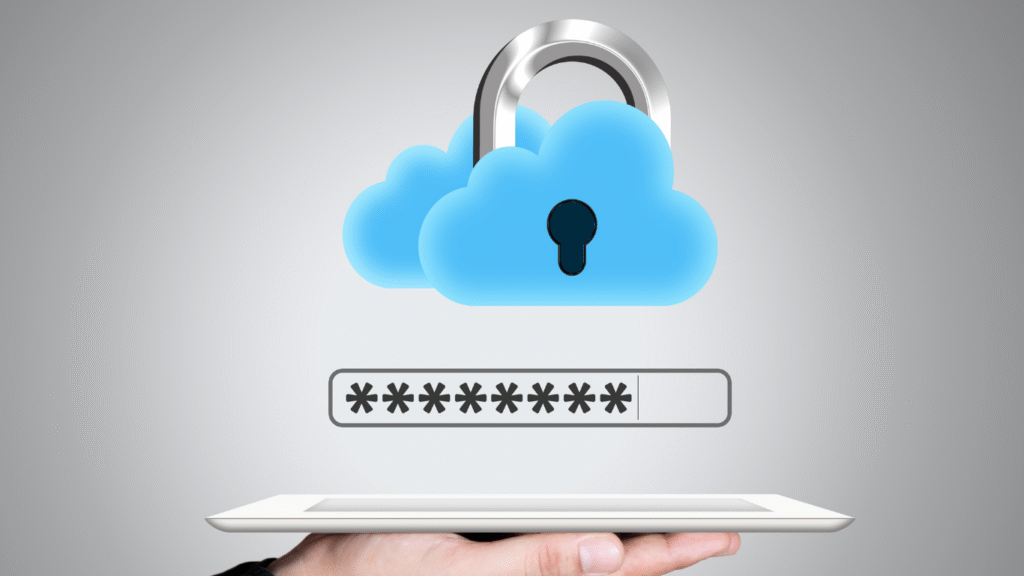Ten years ago, firewalls and antivirus software protected business networks. Now, traditional defenses are not enough. Almost 90% of businesses use the cloud. They store customer information, intellectual property, and sensitive financial data there.
A single configuration error or unprotected endpoint could cause a major security breach. The best cloud security tools for business are useful in this situation. They’re using the latest security tech, like identity verification, encryption, AI threat detection, and compliance tracking, to keep your digital assets safe.
What Makes the Best Cloud Security Tools for Business?
All cloud tools aren’t created equal. Here’s what makes a cloud security tool top-notch:
- AI-powered protection with real-time alerts for threat intelligence.
- Encrypting data all the time, whether it’s moving or just sitting there.
- IAM (Identity & Access Management) It’s all about who gets to see what.
- Helping you with rules like GDPR, HIPAA, and SOC 2.
- Protection for AWS, Azure, Google Cloud, and hybrid environments.
The Best Cloud Security Tools for Business in 2025
Here are the tools making news in 2025 for keeping businesses secure and resilient.

Palo Alto Prisma Cloud
Prisma Cloud has established itself as the industry standard for cloud-native security. It gives you total visibility into workloads, APIs, and network traffic. Prisma’s integrated AI-driven threat detection guarantees that you discover vulnerabilities before hackers do. That is why it is ranked first on the list of the Best Cloud Security Tools for Business in 2025.
Microsoft Defender for Cloud
Defender for Cloud provides seamless connectivity with Microsoft 365 and Azure as organizations migrate to hybrid and multi-cloud settings. It provides enterprises with real-time compliance scoring, enhanced malware prevention, and insider threat monitoring. If you’re a Microsoft user, this is one of the best cloud security tools for business you shouldn’t pass up.
CrowdStrike Falcon Cloud Security
CrowdStrike revolutionized endpoint protection and now leads cloud security. Its Falcon technology employs behavioral AI analytics to prevent ransomware and complex intrusions. Falcon is one of the best cloud security tools for businesses that handle critical financial or government data.
Check Point CloudGuard
Check Point CloudGuard stands out for its strong multi-cloud compatibility across AWS, Azure, and GCP. It specializes in automated threat prevention, container security, and policy compliance. CloudGuard remains among the best cloud security tools for business due to its dependability and global usage.
IBM Security Guardium
Guardium, developed by IBM, is a data protection powerhouse. With robust encryption, real-time monitoring, and machine learning-based insights, it assists companies in protecting important datasets. For industries like healthcare and banking, Guardium remains one of the best cloud security tools for business.
Emerging Trends in Cloud Security for 2025
Emerging cloud security trends for 2025 include the growth of Zero Trust Architectures and AI-driven threat detection, the adoption of Cybersecurity Mesh Architecture (CSMA) and cloud-native security solutions, and more automation in DevSecOps to integrate security into development.
Zero Trust Frameworks
In today’s cloud-first world, Zero Trust security—where nothing and no one is trusted unless verified—is swiftly becoming the new normal, particularly as remote and hybrid work become more common.
Zero Trust Frameworks follows the rule of “never trust, always verify.” It is an essential component of modern cybersecurity, as data is distributed among cloud services and apps. The goal is to reduce your attack surface by continually validating people, apps, and devices regardless of their location or perceived trust level.
In the cloud, no user should be automatically trusted. That is the basis of Zero Trust. Unlike typical systems, where checking in once grants access to everything, ZTF requires verification at every stage. When users attempt to access fresh data or resources, they may be required to reauthenticate, sometimes using multi-factor authentication (MFA).
AI-Driven Threat Detection and Response
Artificial intelligence and machine learning are changing the game in security. They can spot odd activity, forecast hazards, and activate automatic defenses by scanning vast databases, allowing organizations to remain ahead of the competition.
In 2025, AI tools will only get more powerful and important. By monitoring the limitless amounts of cloud activity data, AI can instantly identify anomalous behavior that humans may overlook. These insights enable security systems to spot risks early on and respond before they do actual harm.
Cybersecurity Mesh Architecture (CSMA)
In intricate hybrid and multi-cloud settings, conventional security is insufficient. This is where CSMA comes in, changing the emphasis from network security to the protection of individual users and devices.
The Cybersecurity Mesh Architecture (CSMA) addresses this issue by decentralizing security tools across dispersed networks while keeping data and supervision centralized. What was the result? Businesses can detect and respond to threats faster, regardless of the source, and benefit from adaptive, fine-grained access restrictions.
Cloud Security Posture Management (CSPM)
Businesses are looking for security frameworks that can keep up with the rapid pace of cloud operations. Enter CSPM, or Cloud Security Posture Management, a rising star in cloud security. CSPM employs automation and continuous monitoring to protect your cloud infrastructure, identify misconfigurations, and adapt to your security requirements.
What makes CSPM so effective is that it goes beyond the fundamentals provided by cloud providers. It regularly evaluates your cloud configuration against best practices, regulatory regulations, and your own security rules, providing your company with smarter, stronger protection.
DevSecOps and Automation
By integrating security into the development process from the outset, DevSecOps moves security to the left. Automation identifies vulnerabilities early on, enforces security regulations, and makes cloud applications significantly more robust.
In today’s digital age, speed is crucial, yet hurried new app development frequently compromises security. DevSecOps, which integrates security into the development process, is what businesses are using as a result. Security is integrated into every phase of the lifecycle by DevSecOps, rather than being added at the end.
Cloud-Native Security
Businesses require more than just basic security to properly protect the cloud. Modern cloud systems require better security and visibility, which tools like Cloud Access Security Brokers (CASBs) offer.
Final Thoughts
Basic firewalls are simply insufficient in 2025. Surviving in a cloud-first world demands smarter, stronger, and more adaptive defenses. That’s why Palo Alto Prisma, Microsoft Defender, CrowdStrike Falcon, Check Point CloudGuard, and IBM Guardium are at the top of the Best Cloud Security Tools for Business list, offering businesses the confidence to tackle any dangers that may arise.
If you are concerned about protecting your company’s future, investing in the best cloud security tools for business is not an extravagance; it is a need.



